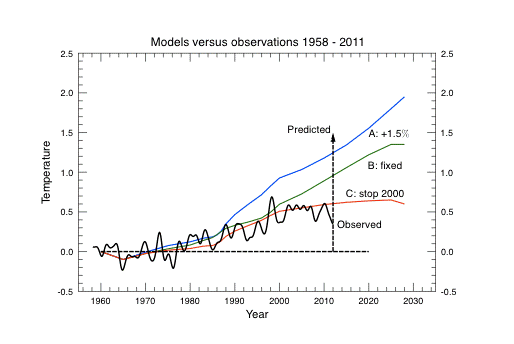On Monday, PJ Media posted an article about global warming.
The article reports:
One of climate alarmists’ favorite predictions is that the Arctic is losing its ice due to global warming, something elites have claimed for decades. New data shows, however, that Arctic ice is actually increasing!
Climate has always changed and will continue to do so until the real apocalypse (not the fake one climate alarmists have been predicting as imminent for decades). With more than 50 years of failed climate change predictions behind them and a track record of consistent and total untrustworthiness, you’d think that the doom prophets would have given up. Then again, climate change is a convenient way for the greedy to enrich themselves (like former Vice President Al Gore) and for power-hungry politicians to take away rights and liberties while claiming a moral and physical necessity.
The article concludes:
It is interesting that last year’s data showed eight years of a global cooling trend rather than warming. Right about this part of winter, I wouldn’t mind a little warming, but many of us in America are instead facing a harsh cold snap. Of course, it’s not encouraging that some entities (including our federal government) aim to engage in geoengineering to manipulate weather and supposedly save the planet from warming. These entities who want to reduce global temperatures ignore the fact that the world isn’t about to go up in flames and that the Arctic is not becoming ice-free.
The real threat isn’t climate apocalypse; it’s leftist ideologues who have the power to weaponize pseudo-scientific propaganda against us and our liberties.
Obviously, I am not in favor of pollution. However, I am in favor of balance and of a free market. India and China are largely exempt from the energy restrictions that recent climate ‘treaties’ have placed on America.
A December 2023 article at NBC News reported:
This year, the burning of fossil fuel and manufacturing of cement have added the equivalent of putting 2.57 million pounds of carbon dioxide into the atmosphere every second.
If China and India were excluded from the count, world carbon dioxide emissions from the burning of fossil fuels and cement manufacturing would have dropped, Friedlingstein said.
In 2023 the world increased its annual emissions by 398 million metric tons, but it was in three places: China, India and the skies. China’s fossil fuel emissions went up 458 million metric tons from last year, India’s went up 233 million metric tons and aviation emissions increased 145 million metric tons.
There is also the fact that many scientists believe that a higher level of CO2 is good for the planet–good for agriculture and good for providing food for more people.







